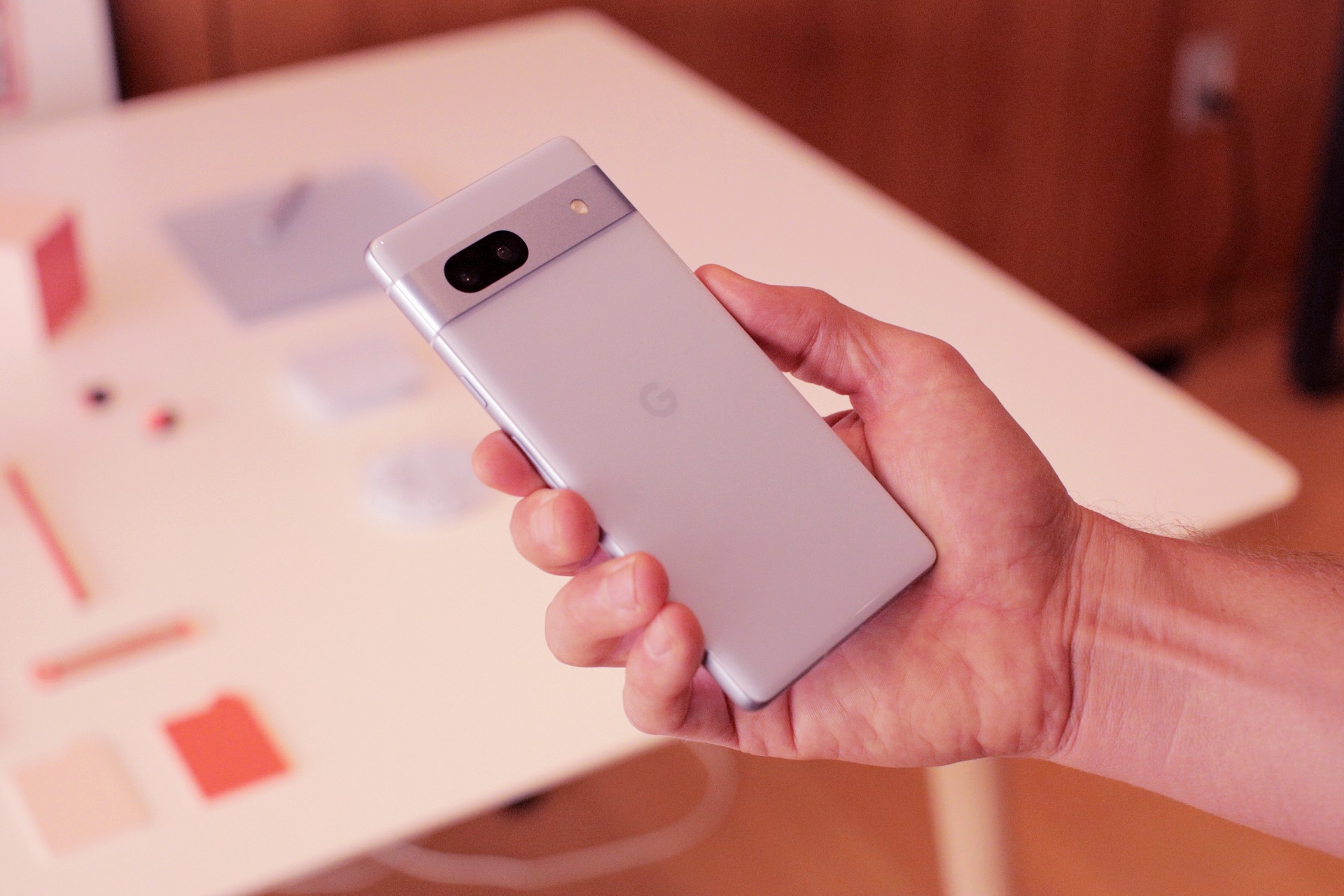For a few years now, the Pixel A line has been one of the best deals in smartphones. It’s a budget take on an already low-priced product. It starts with a foundation of premium components, discovering ways to reduce cost without — hopefully — stripping too much of what made the premium product good in the first place.
It’s a strategy that’s served Google well. When the company was struggling to sell Pixel devices, it was the A series that helped it dig itself out of a hole. It’s a move that’s allowed the company to expand into additional markets, including — most notably — India, the world’s second largest smartphone market, where premium-priced flagships are often a hard sell.
Each fall, Google releases a new flagship, using the latest and greatest hardware to showcase some of the AI software tricks it’s been cooking up. In the spring around AI, it issues a budget device that utilizes its latest silicon in a cheaper package. The materials are different, the camera hardware isn’t as strong. Superficially, the device bears more than a passing resemblance to its more premium counterpart, but like all good budget devices, there’s not a lot the average user will miss.
This is the promise of the Pixel 7a, which was unveiled today alongside the Pixel Tablet and Pixel Fold onstage at the Google I/O kick-off keynote. Seeing as how we’re talking about a budget device, the first thing to note here is the price. The device runs $499. That’s $100 less than the Pixel 7. It’s also $50 more than the Pixel 6a, which is not an insignificant price bump — particularly in the world of budget devices.
Image Credits: Google
Keeping it (only just technically) “below” $500 is a symbolic victory, as far as the classification of budget handsets go. What’s always been a bit tricky for the line is that the standard Pixel is already quite affordable — $600 in a world of $1,000 devices. Of course, if you want the real flagship, you’ll need to look at the 7 Pro. That device is $900. So its 3x the price jump between the 7 and 7 Pro than the 7a and 7.
At the end of the day, however, Google recognizes that the A-line played an outsized role in helping the company gain a foothold in the mobile world. It always tends to sell well, but if the more expensive device cannibalizes the cheaper one due to better hardware, a six-month head start and relatively small price gulf between models, so be it. At the end of the day, that simply means more money for Google.
If money is still a major hurdle, the company is also keeping the Pixel 6a around with a $100 price drop, putting it at a very affordable $349.
Top line, the biggest edition is the Tensor G2. It’s the second generation of Google’s in-house silicon, which was introduced alongside the Pixel 7 (though, as Frederic noted, it wasn’t a huge advance over the G1). It powers all three of the devices launching today and is the foundation of a growing Pixel hardware ecosystem that also includes the Pixel Watch and various iterations of Pixel Buds. That’s coupled with 8GB of RAM, which you also get with the 7 — ditto for the 128GB of storage. The Pro, on the other hand, sports 12GB of RAM, while the storage runs up to 512GB.
Image Credits: Google
Tensor has, thus far, failed to keep apace with Snapdragon. That’s to be expected, really. Google has no shortage of money or smart people working on the project, but Qualcomm has a significant head start. And while the benchmarks can’t touch the Snapdragon 8 Gen 2, the performance is good for a budget or mid-tier system, which is the context in which it should be considered on the 7a.
Perhaps most important in terms of day to day use, the new chip enabled key imaging features like Face Unblur to sharpen images and Super Res Zoom. Other Google-specific imaging features include Magic Eraser, Night Sight and Real Tone for skin colors. The 7a is getting both, though the latter is limited to 8x versus the Pro’s 30x.
The 7a maintains the dual rear-facing camera setup, though both get a megapixel bump over the 7 from 50 to 64 on the wide camera and 12 to 13 megapixels on the ultrawide. The rear setup is capable of shooting 4K video at 60FPS. The 13-megapixel front-facing camera, meanwhile, can do 4K at 30FPS. I really miss the flexibility and zoom of the 7 Pro, but I was able to grab some nice shots around my neighborhood with the 7a’s cameras.

Image Credits: Brian Heater
The 7a’s displays is 6.1 inches to the 7’s 6.3. Both are 1080 x 2400, which means the 7a actually has the (slightly) higher pixel density of the two. It also adopts the 7’s 90Hz refresh rate. The system has the same battery rating as the 7 — “up to 24 hours” with standard use and “up to 72 hours” with the Extreme Battery setting — meaning it’s likely the same (or very similar) 4355 mAh inside.
The Pixel 7a launches tomorrow in the U.S., Canada, U.K., Ireland, Germany, France, Spain, Italy, Norway, Netherlands, Denmark, Sweden, Japan, Australia, Singapore, Taiwan and India. Here in the States, it will run you $499.
All in all, a nice edition to the line that doesn’t make too many meaningful sacrifices to the original 7 in order to keep the price down. A more meaningful price difference would have helped further distinguish the devices, but that can be a tricky line to walk.
Google’s $499 Pixel 7a is on sale now by Brian Heater originally published on TechCrunch

















 English (US) ·
English (US) ·